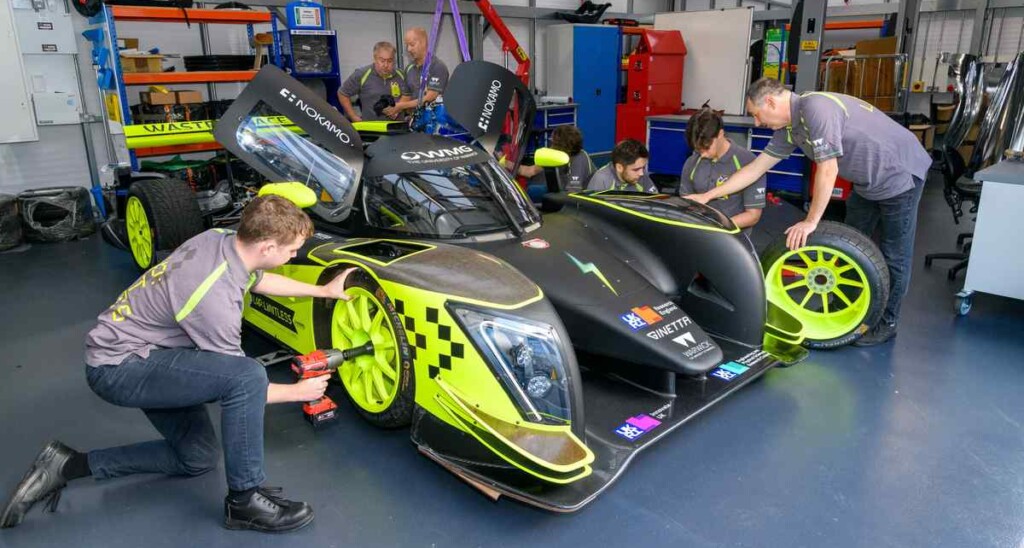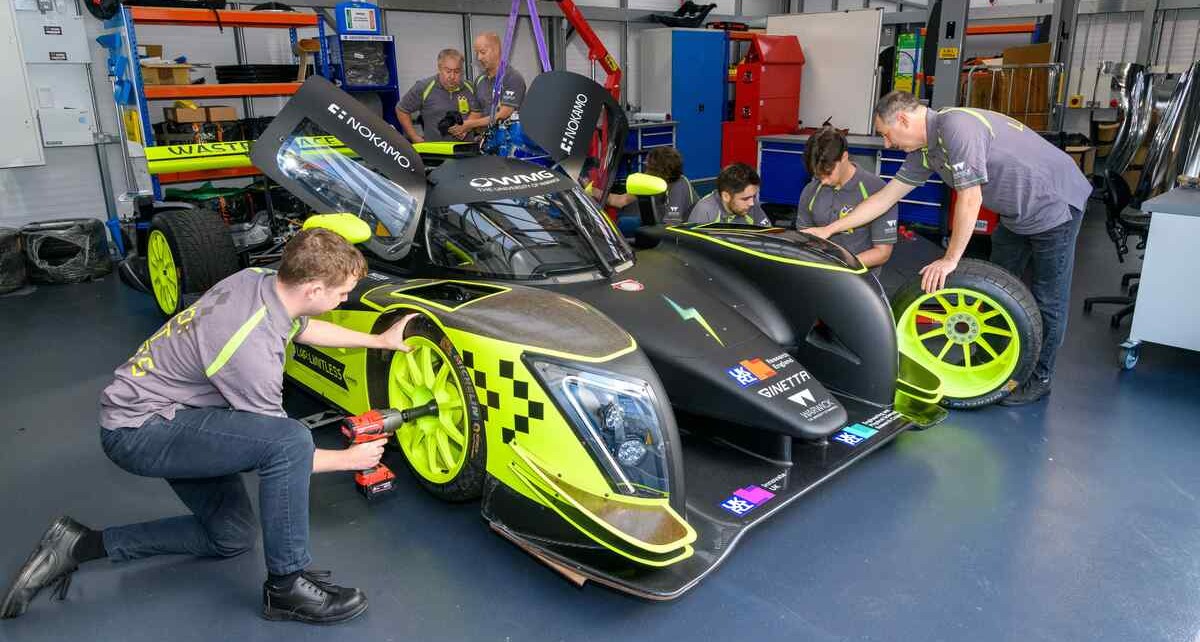
A hydrogen-powered car fueled by sewage and manufactured with various recycled materials may soon attempt to break several land speed records.
The car was built by students at Warwick Manufacturing Group (WMG) at the University of Warwick and will run off a byproduct of wastewater from the utilities company Severn Trent Water.
The Waste2Race Le Mans Prototype race car (LMP3) has been built from a selection of spare and unused parts to further its sustainable street cred in a world little-regarded for its sustainability—motorsport.
The car itself will be used to try to break one of several land speed records depending on how it performs, including the fastest standing and flying starts for both a mile and a kilometer. Its creators hope to have the car fully up and running in the next 6 to 12 months.
The parts themselves come from Ginetta, a British specialist builder of racing and sports cars based in Leeds. Among its green bits and bobs are materials made from recycled carbon fiber and a wing mirror made from beetroot waste.
The steering wheel is also 100% natural, while the firm ENRG Motorsport contributed a battery recovered from a crashed road car.
“These sorts of collaborations are a great example of how businesses, universities, and the endless curiosity of our students can break barriers and push the boundaries of what’s possible,” said Head of the Sustainable Materials and Manufacturing Research Group at WMG, Professor Kerry Kirwan.
“We’re incredibly proud of the ingenuity of our students and wish them all the best of luck in their land speed record attempt.”
GREEN ENDEAVORS IN SPORT: Madrid’s Iconic Football Stadium Now has a 4-Story Underground Greenhouse to Store ‘Retractable’ Grass Field
WMG staff and students aim to complete the car in 2025 and use it to showcase a wide range of sustainable concepts that are being worked on across the university and industry.
“We have a firm commitment to support technologies that have positive impacts on our environment, from reducing the process emissions at our sites, to developing the circular economy in our region and helping partners like the University of Warwick to realize potentially game-changing new technologies like this,” Richard Walwyn, Head of Asset Intelligence & Innovation at Severn Trent Water, said in a statement.
The project, ‘Waste2Race’, comes as manufacturers such as Alpine and Toyota are exploring hydrogen as a fuel for racing cars of the future. BMW recently announced plans for its first hydrogen car to go on sale in 2028.
MORE STORIES LIKE THIS: Car Makes Record-Breaking 621-Mile Trip on Single Charge Powered by the Sun
Typically hydrogen fuels are investigated for their potential to power heavy machinery like planes, trains, and construction equipment.
The 24 Hours of Le Mans, one of the most famous motorsport events in the world, said they are opening the race to hydrogen fuel cell vehicles in 2026 as a way of greening the event.
SHARE This Impressive Student Endeavor With Your Friends…




















